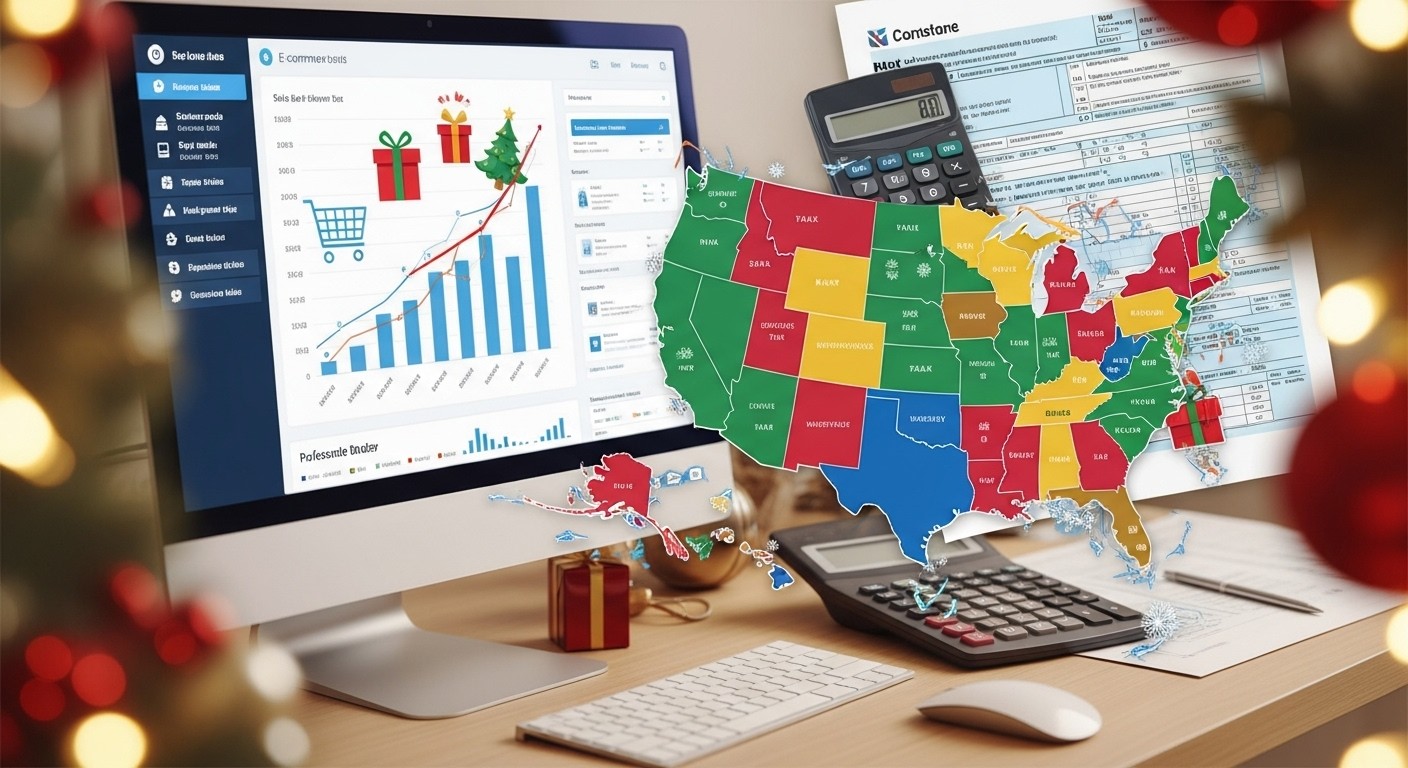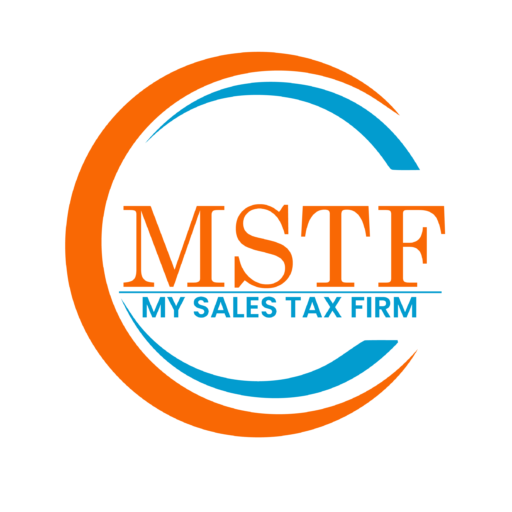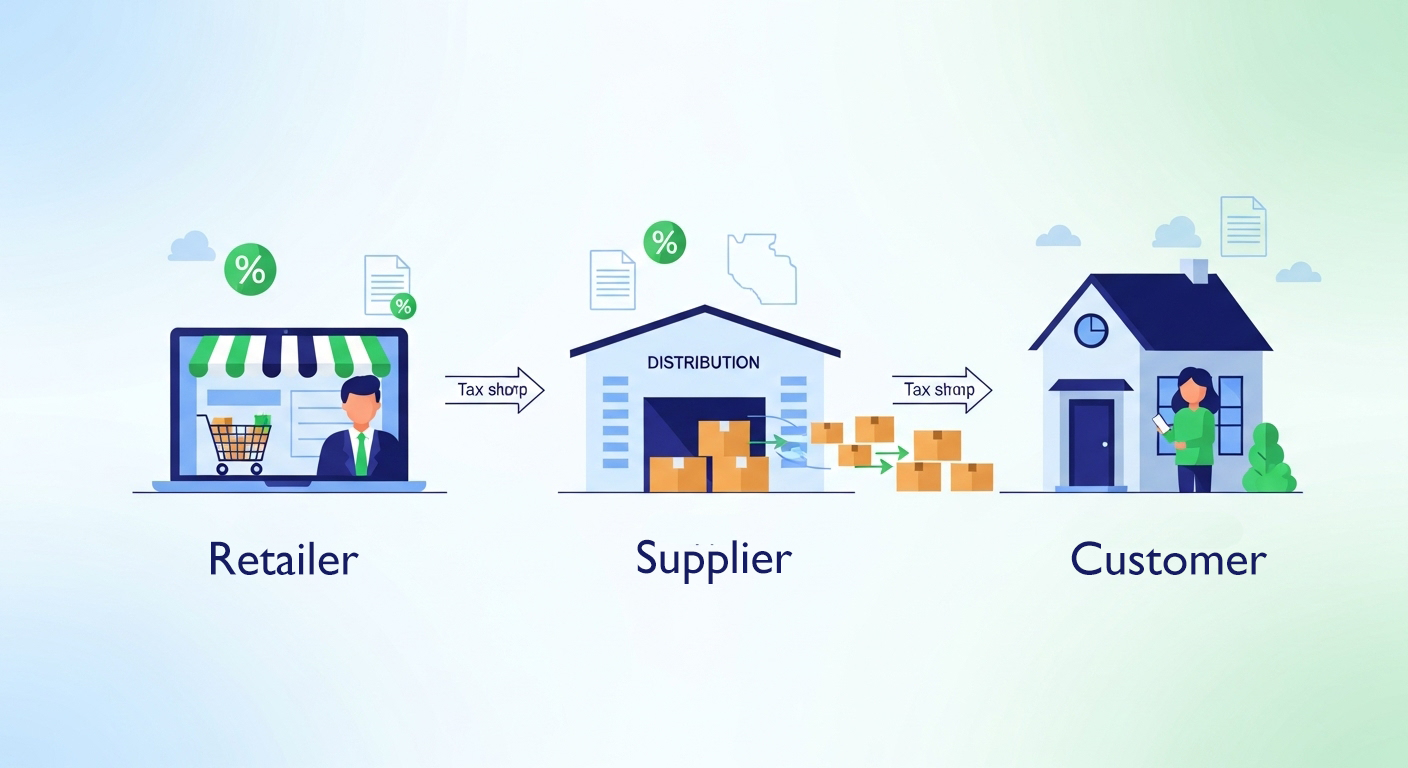Introduction – The Future of Sales Tax for Small Businesses
Let’s be honest: sales tax used to be a back-burner issue for most small business owners. But now? It’s front and center, and it’s not going away. The future of sales tax for small businesses is looking more complicated than ever, and if you’re running an e-commerce store or even a local business that sells out of state, this should matter to you.
You might be wondering: Why is sales tax suddenly such a headache? The answer lies in a tangled mess of legal changes, digital commerce growth, and an aggressive push from state governments to squeeze every dollar they can. This article will break it all down.
Why You Can’t Afford to Ignore the Sales Tax Storm Brewing
Think sales tax doesn’t apply to you because you’re small? Think again. Nexus laws don’t care how small you are. And economic nexus thresholds keep shrinking. What used to be a problem only for big retailers is now very much your problem, too.
What This Article Will Help You Understand
In this post, we’ll walk you through why sales tax is getting harder, what that means for your business, how to stay compliant, and why trying to “DIY” your tax strategy could cost you way more than hiring help. If the phrase future of sales tax for small businesses doesn’t scare you yet—it will.
The Sales Tax Landscape Is Evolving Fast
A Quick Look Back: The Wayfair Decision Changed Everything
Back in 2018, the Wayfair decision turned the world of sales tax on its head. Before that, you only had to collect sales tax in states where you had a physical presence. Now, economic activity — like hitting a certain sales threshold — triggers tax obligations in states you’ve never even visited.
This decision opened the floodgates. States quickly passed economic nexus laws, each with their own thresholds, timelines, and reporting quirks.
Marketplace Facilitator Laws Add New Layers
The rise of marketplace facilitator laws was supposed to simplify things. Platforms like Amazon or Etsy now have to collect and remit sales tax for sellers. But here’s the catch—it’s not uniform. Every state has its own definition of what counts as a marketplace, and you’re still on the hook for tax reporting in many cases.
This adds more confusion instead of clarity. And unfortunately, it’s only the beginning.
State-by-State Tax Requirements Are a Nightmare
You might think sales tax is a federal issue—it’s not. Every state revenue department makes its own rules. Some even tax digital goods, others don’t. Some have flat rates, others use complex local tax districts. It’s a chaotic patchwork.
So if you’re selling in five or ten states? That’s five or ten completely different sets of tax regulations to keep up with.
Why Sales Tax Is Getting Harder to Handle
Remote Sellers and Multi-State Compliance
E-commerce means more reach, but it also means more exposure. As a remote seller, you could unknowingly trigger nexus in multiple states just by crossing their sales thresholds. That means collecting, reporting, and remitting sales tax in all those places.
Multi-state compliance isn’t a luxury anymore—it’s a necessity. But it’s also overwhelming.
Economic Nexus Laws – A Moving Target
What qualifies as “economic nexus” today might change tomorrow. Some states set thresholds at $100,000 in sales, others at 200 transactions. Some use both. And they tweak these rules almost every year.
Staying compliant with economic nexus laws means monitoring your sales data constantly. And that’s not something most small business owners signed up for.
Digital Goods Taxation Adds More Confusion
Sell software, eBooks, or online courses? You’re probably subject to digital goods taxation in more than one state. Some states tax it like physical goods. Others don’t. And some change their stance mid-year.
There’s no universal rulebook, just a lot of legal grey areas.
Ongoing Sales Tax Updates in 2025 and Beyond
Legislation is evolving rapidly. Sales tax updates in 2025 will likely expand taxability, increase penalties, and shrink thresholds even more. This isn’t just speculation—it’s already happening in a handful of states looking to close revenue gaps.
The Real-World Effects on Small Business Owners
Small Business Tax Confusion is Real
Ask any entrepreneur and they’ll tell you: sales tax confusion is the worst kind of tax confusion. You’re expected to know complex, changing rules, and if you get it wrong, the consequences can be severe.
One small misstep, and you could face fines, audits, or even backdated tax bills.
Why Sales Tax Rules for Online Sellers Are Unfairly Complex
Online sellers are being held to a higher standard than brick-and-mortar shops. The expectation is that you’ll comply with every state’s sales tax rules no matter how small you are. That’s not just unfair—it’s borderline impossible without expert help.
Managing Tax Compliance in Multiple States is Draining
You didn’t start your business to become a tax expert. But managing compliance across multiple states often feels like a full-time job. Every state wants its piece of the pie, and you’re stuck baking it.
It’s not sustainable—and that’s the hard truth.
The Risk of Falling Behind
What Happens When You’re Not Compliant?
Ignore sales tax compliance, and you’re risking way more than a slap on the wrist. States are auditing more aggressively, and penalties can stack up fast. Even if you didn’t mean to break the rules, ignorance won’t save you.
How Sales Tax Audits Can Derail Your Business
A sales tax audit can freeze your cash flow, trigger expensive legal battles, and destroy customer trust. And yes, small businesses are getting audited more than ever before. The states see you as low-hanging fruit.
Automation Isn’t Always the Answer
Avalara, TaxJar, and the Illusion of Simplicity
Sure, tools like Avalara and TaxJar promise seamless tax automation. But the truth? They’re not plug-and-play solutions. They often miss local tax rules, misclassify products, or fail to account for recent legislation.
Why Sales Tax Tools Still Require Human Oversight
Even with automation, you need someone watching the system—ideally, someone who knows the ins and outs of state tax laws. A tool can’t strategize or make judgment calls. And when you’re audited? Software doesn’t go to court for you.
What Small Business Owners Should Do Right Now
Stay Ahead of State Tax Laws and Sales Thresholds
Track your sales in every state. Know where you’re approaching a sales threshold. Keep tabs on sales tax updates in 2025. Ignorance isn’t a defense.
Understand the Role of State Revenue Departments
Don’t underestimate state revenue departments—they’re getting smarter. They track online sales, issue automated audit notices, and apply pressure quickly. Be proactive.
Build a Long-Term Sales Tax Compliance Strategy
Think long-term. Set up systems to track economic nexus, monitor multi-state compliance, and audit your own books regularly. You don’t have to do it alone—but you do have to do it.
Conclusion – Sales Tax Isn’t Going to Get Easier
The future of sales tax for small businesses is undeniably more complex, and it’s only getting worse. Between nexus laws, economic thresholds, and the rise of digital goods taxation, staying compliant is a beast.
But now that you understand why sales tax is getting harder, you can take the next step: get help. Whether that means ditching automation for real strategy, or finally hiring a pro, do something. Because if you wait? The system will catch up to you—and it won’t be pretty.
Need clarity on your sales tax situation? Book a free consultation with a real human expert at MySalesTaxFirm.com and get peace of mind before your next audit notice arrives.









